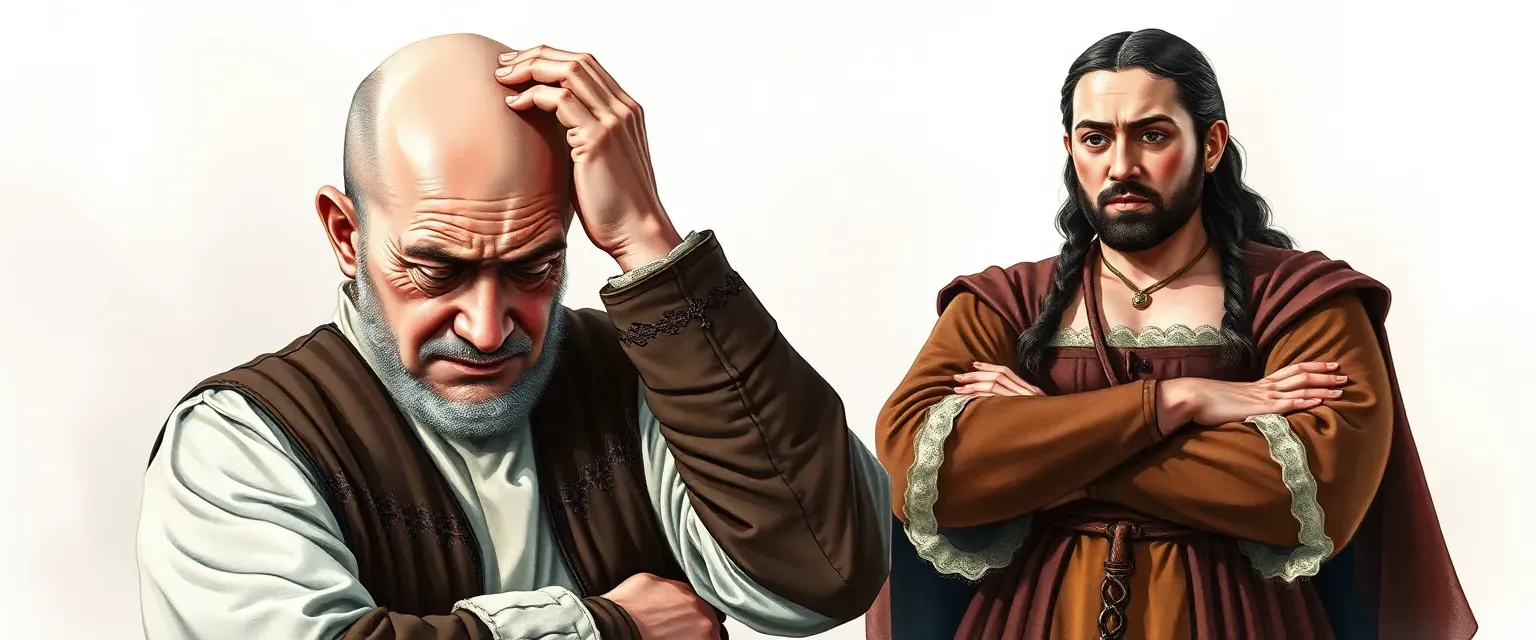Doop, a man in his sixties, is a figure of despair and resignation, his once robust frame now shriveled and hunched over. Clad in tattered medieval clothing, his bald head is often seen clutched in his hands, a gesture that speaks volumes of his inner turmoil. His life as a once-respected scribe in the court of King Roderick has crumbled, leaving him to wander the streets, haunted by the loss of his position and the death of his beloved wife, Elara. Doop's unique quirk is his incessant muttering of old courtly phrases, a remnant of his past life that he cannot let go. His desire to reclaim his honor and return to the court drives him, yet his age and the political machinations of the new court keep him at bay. He spends his days writing letters to the king, hoping one might reach him and restore his position. The letters, though never delivered, give him a sense of purpose. This coping mechanism works for Doop as it keeps his mind engaged and away from the despair of his current situation. His story ends with him finding solace in a group of fellow outcasts, where he shares his stories and finds a new, albeit modest, form of recognition. The conflicts in Doop's life revolve around his struggle with his past glory, the harsh reality of his present, and his unyielding hope for the future.
Dee, standing robust and formidable in her fifties, is a stark contrast to Doop. Dressed in a medieval gown that speaks of her former status as a lady-in-waiting, she now uses her imposing presence to assert her will in the marketplace. Her arms are often crossed, a sign of her defensive stance against the world that has wronged her. Dee's unique trait is her booming laugh, which can be heard echoing through the market, often startling those around her. Her ambition to regain her lost status and influence in the court fuels her every action. However, her past indiscretions and the current court's disdain for her make her goal elusive. She takes up the role of a shrewd merchant, using her knowledge of the court's inner workings to her advantage. Her business acumen and ability to manipulate others work in her favor, allowing her to amass wealth and influence in the market. Dee's story concludes with her using her newfound power to subtly influence court politics from the shadows, never regaining her former title but finding a new path to power. The conflicts in Dee's life stem from her desire for revenge against those who ousted her, her struggle to maintain her dignity in her new life, and her constant battle with the court's ever-shifting alliances.
